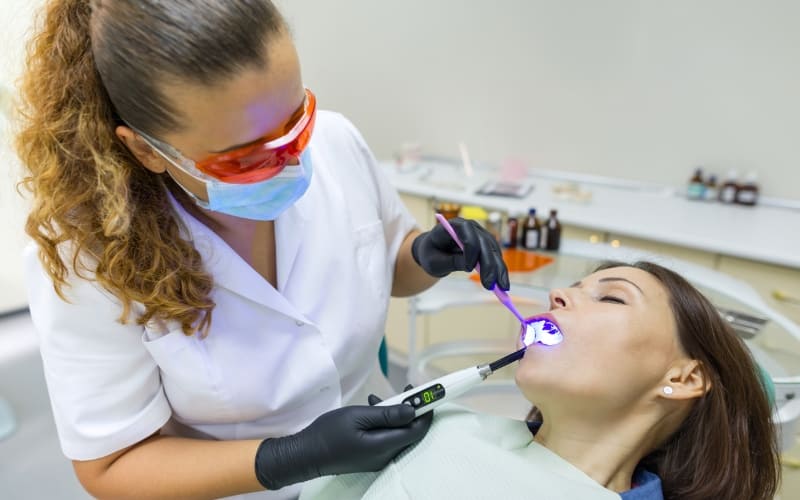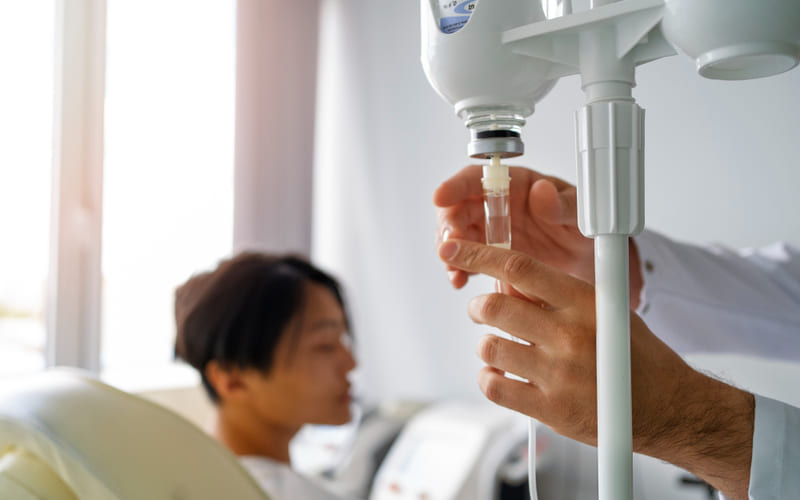same day emergency appointments available
Sedation Dentistry 101: Your Stress-Free Dental Options

Starting to improve dental health should not be fraught with dread. Consider a dentist appointment a relaxing experience free of worry and suffering. This concept has become a reality in the arena of Sedation Dentistry 101. Consider moderate relaxation or joyful unawareness while you go through your dental procedures. We unravel the fabric of sedation dentistry in this guide, revealing a range of alternatives to convert dental appointments into moments of peaceful certainty. Say goodbye to dental worry as we chart a course to stress-free smiles and pain-free oral care. Welcome to a new age in oral health.
What Is Sedation Dentistry?
Sedation dentistry employs pharmacological medications to calm and soothe patients before and during dental treatments. These sedatives depress the central nervous system, impacting regions associated with conscious consciousness. There are many levels of major jumpy system depression, ranging from mild to severe drowsiness. The enteral route, which includes medication absorption over enteric membranes, and the parenteral route, which requires delivery of sedative medications outside the alimentary canal, can both be used to produce sedation. Both approaches seek to give patients a pleasant and efficient dental experience.
Types Of Sedation
Oral sedation, inhaled sedation (nitrous oxide), IV sedation, and general anesthesia are the primary kinds of sedation dentistry. Each type has pros and disadvantages, so consult your dentist to determine the best.
1. Oral Sedation:
Oral sedation is a drug you take before the dentist that makes you sleepy, aware, and receptive. It is inexpensive and straightforward to use, but it may not be beneficial for nervous people or those with low pain tolerances.
2. Inhaled Sedation (Nitrous Oxide):
Nitrous oxide, popularly known as laughing gas, is a gas that is breathed through a mask during a visit to cause lightheadedness and relaxation while remaining alert. Because of its immediate action and quick removal, it is appropriate for persons with respiratory or cardiac issues.
3. IV Sedation:
Before your treatment, an IV line will be inserted into your vein, and medicine will be injected into your vein. This sort of medication will render you unconscious during the surgery. The benefit of IV sedation is that it offers more.
4. General Anaesthesia:
General anesthesia, reserved for complex treatments or acute dental fear, guarantees absolute unconsciousness, allowing dentists to execute significant work efficiently. While rigorous, it provides a quick answer for people wanting thorough therapy without requiring several consultations.
Who Is in Need of Sedation Dentistry?
Sedation dentistry can assist people of all ages, including children. Dentists frequently offer this approach for patients who have:
1. A Phobia Of Going To The Dentist:
Dental anxiety, or dread of dental appointments, can have a substantial impact on oral health owing to unpleasant events in the past or a fear of pain. Individuals suffering from dental anxiety can benefit from sedation dentistry, which allows them to get necessary oral treatment without dread.
2. Aversion To Needles (Aichmophobia):
Individuals who have aichmophobia can benefit from sedation dentistry, which allows them to undergo dental care without experiencing needle phobia fear. Options such as nitrous oxygen or oral sedation can help overcome this reluctance and provide more pleasant dental care.
3. A Gag Reflex That Is Too Sensitive:
With various sedation levels available, sedation dentistry provides a pleasant and anxiety-free alternative for those with overactive gag reflexes, allowing them to endure dental operations without the stress of activating this response.
4. Extremely Sensitive Teeth:
Sedation dentistry relieves those with sensitive teeth by keeping them comfortable throughout treatments, allowing dentists to address oral health issues while prioritizing their comfort.
Other reasons for requiring sedation dentistry include decreased sensitivity to local anesthesia, unique needs (physical, cognitive, or behavioral), and difficulty managing emotions.
Benefits Of Sedation Dentistry:
1. Safety And Comfort:
Ensuring safety and comfort is one of the critical benefits of this procedure. Patients can have dental operations performed without the tension and anxiety that often impede the process. Dentists may also operate more effectively when their patients are comfortable, which leads to better results.
2. Time Efficiency:
Sedation dentistry might be a time-saving alternative for people with hectic lifestyles. Dentists can execute many treatments in one sitting by inducing relaxation or unconsciousness, minimizing the number of visits required to finish the treatment plan.
3. Overcoming Dental Phobia:
Many people suffer from dental fear, which causes them to forgo required oral care. Sedation dentistry offers a feasible alternative, allowing even the most fearful individuals to obtain the dental care they need without experiencing overwhelming terror.
Choosing The Right Option:
1. Consultation With Your Dentist:
First, speaking with your dentist to choose the best sedation procedure would be best. Discuss your anxieties, medical history, and concerns openly. This conversation offers a targeted approach, allowing dentists to prescribe the safest and most effective sedation based on your specific needs and degree of comfort.
2. Risks And Considerations:
While sedation dentistry is typically safe, it is critical to identify potential hazards. Your dentist will thoroughly explain the details of your chosen sedation procedure, ensuring you’re well-informed. Factors such as medical history, allergies, and the type of surgery are considered to reduce problems. This open dialogue empowers patients, allowing them to make informed decisions and creating a safe and anxiety-free dental visit. Always prioritize open communication with your dentist for a well-informed path toward good oral health.
Acting as the conductor in the symphony of oral health, Sedation Dentistry In Maywood, NJ, eliminates dental phobias, ushering you into a tranquil journey toward excellence. Our guide empowers you to make informed decisions for gentle relaxation or deep sedation. Spring Valley Dental Care transforms routine appointments into serene moments, expediting procedures and alleviating anxiety. Bid farewell to dental fears as we usher in a new era where your smile takes center stage. Through sedation dentistry, discover the gateway to confident, pain-free smiles through personalized consultations, focused attention, and tailored treatments. Embrace trust in your dentist’s expertise as you embark on the path to optimal oral health.



 Back
Back